Intro
Understanding your blood type is crucial for various aspects of health and medical care. The importance of knowing your blood type cannot be overstated, as it plays a significant role in transfusions, pregnancies, and even certain medical conditions. With the advancement in medical science, it has become easier to determine one's blood type, and this knowledge can be a lifesaver in emergency situations. In this article, we will delve into the world of blood types, exploring their significance, the different types, and how to easily determine yours.
The human body contains approximately five liters of blood, which is made up of various components, including red blood cells, white blood cells, platelets, and plasma. The unique characteristics of these components determine an individual's blood type. There are four main blood types: A, B, AB, and O, each with its distinct traits and compatibility requirements. Knowing your blood type can help you understand your body's needs, make informed decisions about your health, and even save your life in critical situations.
The curiosity about blood types has been a longstanding one, with many people wondering how to find out their blood type easily. Fortunately, determining one's blood type has become relatively straightforward, thanks to advancements in medical technology. A simple blood test can reveal an individual's blood type, and this information can be used to make informed decisions about health and medical care. In the following sections, we will explore the different aspects of blood types, including their characteristics, importance, and how to easily determine yours.
Understanding Blood Types
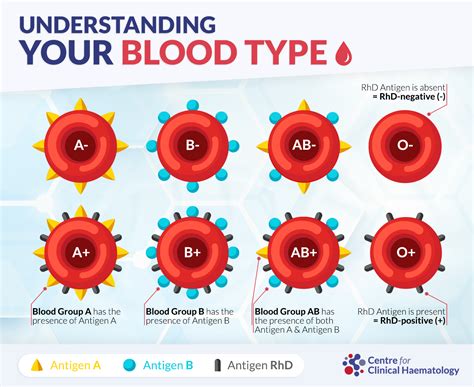
Understanding the different blood types is essential for making informed decisions about health and medical care. The four main blood types – A, B, AB, and O – are determined by the presence or absence of specific antigens on the surface of red blood cells. Antigens are substances that can trigger an immune response, and in the case of blood types, they determine the compatibility of blood between individuals. The ABO blood group system is the most important blood type system in human medicine, as it determines the compatibility of blood transfusions.
Characteristics of Blood Types
The characteristics of each blood type are unique and play a significant role in determining compatibility. For instance: * Type A blood has the A antigen on the surface of red blood cells and B antibodies in the plasma. * Type B blood has the B antigen on the surface of red blood cells and A antibodies in the plasma. * Type AB blood has both A and B antigens on the surface of red blood cells and no A or B antibodies in the plasma. * Type O blood has neither A nor B antigens on the surface of red blood cells and both A and B antibodies in the plasma.Importance of Knowing Your Blood Type
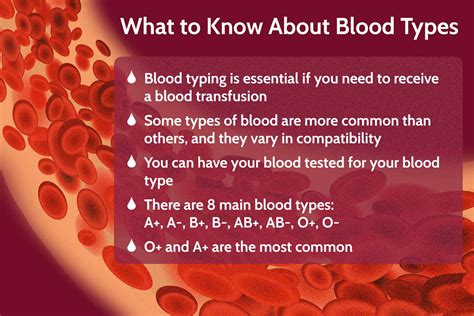
Knowing your blood type is crucial for various aspects of health and medical care. Here are some reasons why:
- Blood Transfusions: Knowing your blood type is essential for receiving blood transfusions. Receiving blood of the wrong type can lead to a severe reaction, which can be life-threatening.
- Pregnancy: Pregnant women with Rh-negative blood type may need special care to prevent complications during pregnancy.
- Medical Conditions: Certain medical conditions, such as anemia, may require knowledge of blood type to determine the best course of treatment.
How to Determine Your Blood Type
Determining your blood type is relatively straightforward and can be done through a simple blood test. Here are the steps: 1. **Visit a Doctor or Medical Facility**: Schedule an appointment with your doctor or visit a medical facility that offers blood typing services. 2. **Blood Sample**: A healthcare professional will take a blood sample from your arm or finger. 3. **Blood Test**: The blood sample will be sent to a laboratory for analysis, where your blood type will be determined. 4. **Results**: Your doctor will inform you of your blood type, which will be recorded in your medical file.Easily Determine Your Blood Type at Home
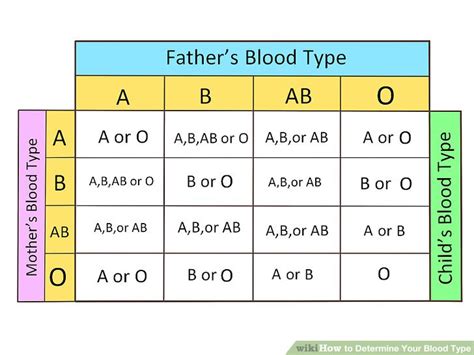
While it is recommended to have your blood type determined by a healthcare professional, there are some at-home tests that can provide an indication of your blood type. These tests typically involve a simple finger prick and a testing kit that can detect the presence of specific antigens. However, it is essential to note that these tests may not be entirely accurate and should not be relied upon for medical purposes.
At-Home Blood Typing Kits
At-home blood typing kits are available online and in some pharmacies. These kits usually include: * A lancet or finger prick device * A testing strip or card * Instructions for useTo use an at-home blood typing kit, follow these steps:
- Prepare the Kit: Read the instructions carefully and prepare the kit according to the manufacturer's guidelines.
- Prick Your Finger: Use the lancet or finger prick device to obtain a small blood sample from your finger.
- Apply the Blood: Apply a small drop of blood to the testing strip or card.
- Wait for Results: Wait for the recommended amount of time, usually a few minutes, for the results to appear.
- Interpret Results: Compare the results to the chart provided with the kit to determine your blood type.
Benefits of Knowing Your Blood Type
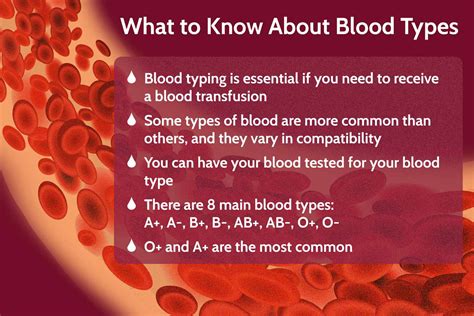
Knowing your blood type has numerous benefits, including:
- Informed Medical Decisions: Knowledge of your blood type can help you make informed decisions about your health and medical care.
- Emergency Preparedness: In emergency situations, knowing your blood type can be a lifesaver, as it enables medical professionals to provide the correct blood type for transfusions.
- Pregnancy Care: Pregnant women with knowledge of their blood type can receive specialized care to prevent complications during pregnancy.
Statistical Data
According to the American Red Cross, approximately 45% of people in the United States have Type O blood, while about 40% have Type A blood. Type B blood is found in around 10% of the population, and Type AB blood is the rarest, occurring in less than 5% of individuals.Common Misconceptions About Blood Types
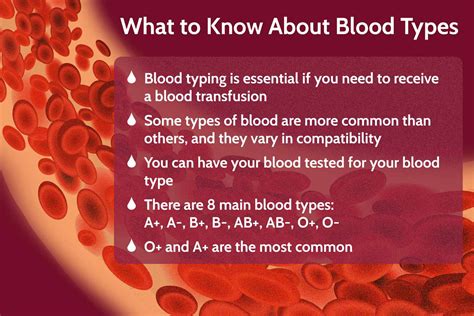
There are several common misconceptions about blood types, including:
- Myth: You can change your blood type through diet or lifestyle changes.
- Fact: Blood type is determined by genetics and cannot be changed.
- Myth: Blood type is only important for transfusions.
- Fact: Blood type is important for various aspects of health and medical care, including pregnancy and certain medical conditions.
Debunking Myths
It is essential to separate fact from fiction when it comes to blood types. By understanding the science behind blood types and debunking common myths, individuals can make informed decisions about their health and medical care.Conclusion and Final Thoughts

In conclusion, knowing your blood type is essential for various aspects of health and medical care. By understanding the different blood types, their characteristics, and importance, individuals can make informed decisions about their health and medical care. Whether through a simple blood test or at-home testing kits, determining your blood type has become relatively straightforward. As we have explored in this article, knowledge of blood type can be a lifesaver in emergency situations, and it is crucial for receiving blood transfusions, pregnancy care, and certain medical conditions.
We invite you to share your thoughts and experiences with blood types in the comments section below. Have you had your blood type determined? What do you think is the most important aspect of knowing your blood type? Share this article with your friends and family to raise awareness about the importance of blood types.
What is the most common blood type?
+Type O blood is the most common blood type, found in approximately 45% of the population.
Can I change my blood type through diet or lifestyle changes?
+No, blood type is determined by genetics and cannot be changed through diet or lifestyle changes.
Why is it essential to know my blood type during pregnancy?
+Knowing your blood type during pregnancy is crucial to prevent complications, such as Rh incompatibility, which can affect the health of the mother and the baby.
